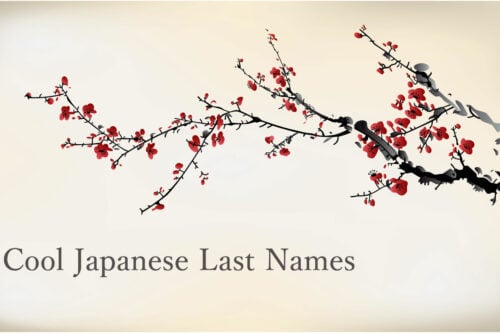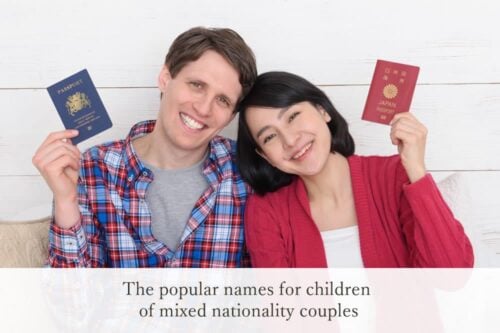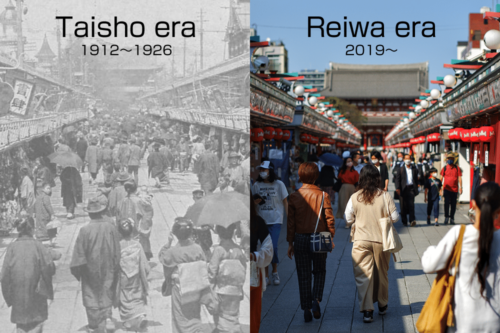Share on your favorite
Or copy the link
Below are navigation links that will take you to the main text and navigation menus.
26,551 first names, 70,620 last names, 333,585 kanji variations.
one of the best Japanese name search tools for your baby!

Many people across the globe, including those in the United States, find themselves drawn to Japanese first names for their mellifluous sounds, deep meanings, and unique aesthetics. Whether you’re a pop-culture enthusiast, a parent seeking a fresh name choice, or simply curious about Japan, these “cool” names may capture your imagination. In this article, we’ll explore how Japanese names work, highlight some of the coolest examples, and explain how you can pronounce them correctly.
Contents
In recent years, Japanese art forms—anime, manga, J-pop, and film—have influenced global trends, giving certain names an air of novelty and style. Characters or celebrities often bear concise, rhythmic names that leave a strong impression on international audiences.
Unlike English names—typically written in the Roman alphabet—Japanese names are written in kanji, which are characters originally derived from Chinese. Each kanji has its own nuanced meaning (e.g., “flower,” “sea,” “cool breeze”), so the same name pronunciation can hold different symbolic values depending on which kanji the parents choose.
While older generations might prefer more classical or multi-kanji names, younger parents sometimes pick short, “global-friendly” names. This shift has boosted the popularity of names like Ren (れん) or Kai (かい), which sound both distinctly Japanese yet easy to pronounce abroad.
Japan’s language allows parents to use kanji that literally mean “cool,” “refreshing,” or “breeze.” These names have a double-layered charm—they sound cool and literally describe a chill or brisk feel.
Japanese first names offer a fascinating blend of concise sounds, symbolic kanji, and often a hint of modern minimalism. From the calm depth of Ren (れん) ![]() and Kai (かい)
and Kai (かい) ![]() to the elegant ring of Anju (あんじゅ)
to the elegant ring of Anju (あんじゅ) ![]() and Yuna (ゆな)
and Yuna (ゆな) ![]() , these names are memorable and adaptable across cultures. In some cases, they literally mean “cool,” like Ryōko (涼子)
, these names are memorable and adaptable across cultures. In some cases, they literally mean “cool,” like Ryōko (涼子) ![]() (“cool child”) or Issa (一颯)
(“cool child”) or Issa (一颯) ![]() (“one breeze”), underscoring just how refreshingly unique Japanese naming conventions can be.
(“one breeze”), underscoring just how refreshingly unique Japanese naming conventions can be.
Whether you’re exploring baby-name ideas, crafting characters for a story, or simply intrigued by Japanese culture, learning about these names deepens your appreciation of how language, artistry, and tradition intertwine. Embrace the coolness—and the warm cultural significance—behind these alluring Japanese first names.




Sort by: Most Relevant
Sorts names by how closely they match your search meaning. Names containing more kanji that match your search terms appear higher in the results.
Sort by: Most Kanji Variations
Sorts names by how many different kanji spellings they have. In general, names with more variants tend to be more familiar and widespread in Japan (with some exceptions).
Sort by: Most Viewed
Sorts names by page views on this site. Views reflect global traffic (including Japan), so this does not represent popularity among Japanese people only. A high view count does not necessarily mean the name is famous in Japan.
What is Hiragana?
Hiragana is one of the two Japanese syllabaries. Each character represents a sound (mora), not a meaning. It is used for native words, grammatical particles, verb/adjective endings (okurigana), and to show pronunciation above kanji (furigana). It developed from cursive forms of kanji.
What is Katakana?
Katakana is one of the two Japanese syllabaries. Each character represents a sound (mora), not a meaning. It is mainly used to write foreign words and names, loanwords, onomatopoeia, and for emphasis.
What is a Kanji Idea?
Kanji are Chinese characters used in Japanese writing. Unlike katakana and hiragana, each kanji character carries its own meaning.
When we convert your name into kanji, we select characters whose sounds match the Japanese pronunciation of your name, while also considering the meaning of each character. The result is a unique combination of kanji that both sounds like your name and carries meaningful symbolism.
We refresh the kanji combination each time you visit, so you can discover different options. If you find one you like, save it to your favorites!
What are English Syllables?
A syllable is a unit of pronunciation in English — it’s the beat you hear when you say a word.
Here are a few quick examples:
cat = 1 syllable
ba-by = 2 syllables
beau-ti-ful = 3 syllables
On this site, English Syllables show how a name naturally breaks into sounds when spoken in English. This helps you understand how English speakers naturally say the name and where they pause between sounds.
What are Japanese Morae?
A mora (plural: morae, Japanese: 拍 Haku) is the basic unit of sound in Japanese — think of it as one rhythmic “beat” when speaking.
Here are a few quick examples:
あ (a) = 1 mora
あい (a-i) = 2 morae
きょう (kyo-u) = 2 morae
On this site, Japanese Morae show how many “beats” a name has in Japanese. Most Japanese names have about 2–4 morae, which affects how natural and rhythmic the name sounds to native speakers.
This helps you see how the name fits into the natural rhythm of Japanese speech.
What is English Transcription?
“English transcription” (romanization) is the romanized form of a Japanese name, intended to reproduce its pronunciation as closely as possible. It is also useful for searching names on this site.
Japanese-Style Nicknames
In Japan, nicknames are used to express familiarity and affection. Typical features include:
Shortened forms: Names are often shortened for closeness, e.g., “Yuki” from “Yukiko” or “Taka” from “Takashi”.
Suffixes: Terms like “-chan” (often for girls, also for young children) and “-kun” (often for boys) are used among family and close friends. Among very close adults, “-chan” may still be used. More details
Use & context: Nicknames are informal—common among friends, family, or close colleagues—and are not suitable for formal or professional settings. Their use implies a certain degree of intimacy.
Long vowels: The long vowel mark “chōonpu” (ー) extends the preceding vowel. For example, “あーちゃん” (A-chan) lengthens the “あ” sound.
Households
Sorts surnames by the estimated number of Japanese households that use them. More households generally indicates a more common or well-known surname.
About our last-name data

Success
Migration completed successfully!